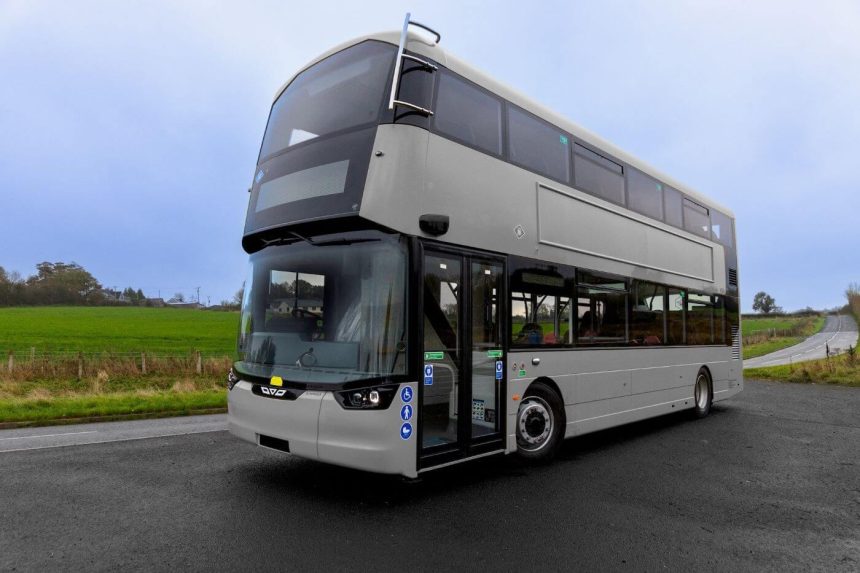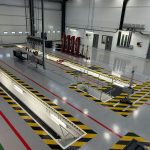Alison Edwards, CPT Director of Policy and External Relations, comments on the importance of collaboration as the UK Bus Manufacturing Panel is launched
There’s something quietly remarkable about standing in a room filled with experts who share the same goal — ensuring the UK’s bus manufacturing sector not only survives but thrives in a zero-emission future.
That was the spirit at the inaugural meeting of the UK Bus Manufacturing Panel, held recently in Sheffield, which was an apt location, given the city’s proud industrial heritage.
Convened by the Minister for Buses and Local Transport, Simon Lightwood MP, this new panel brings together manufacturers, operators, local leaders, and policy experts.
It’s a recognition that the journey to a cleaner, more sustainable bus network isn’t just about technology. It’s about collaboration, clarity, and getting the conditions right for long-term investment.
From the perspective of the Confederation of Passenger Transport (CPT), this is a welcome development.
Our members bring immense expertise to the table in fleet management, customer insight, operational know-how, and technical innovation.
For the UK to remain a global leader in bus manufacturing, we must fix the pipeline
It was a privilege to represent them in these early discussions, and to ensure that all suppliers’ and operators’ voices are heard as policy and procurement models evolve.
One clear message emerged: for the UK to remain a global leader in bus manufacturing, we must fix the pipeline. Right now, it’s too patchy, too uncertain.
Operators are keen to invest, but there are hurdles. Top of the list? The frustratingly slow process of connecting depots to the grid to support electric fleets.
Add to that a lack of policy clarity around long-term funding and franchise models in urban areas, and it’s no wonder some operators are hesitant to place large orders.
This uncertainty creates what we might call an “investment blight”. It’s not a lack of will or ambition — it’s a lack of visibility.
Manufacturers can’t scale up production without confidence that the orders will come. Operators can’t invest in new vehicles without knowing whether they’ll have grid connections or contracts secured in time.
And passengers? They miss out on the modern, clean, comfortable services they deserve.
Thankfully, there are signs of progress. The Bus Services (No.2) Bill now making its way through Parliament has the potential to provide a framework for clearer decision-making when it comes to investment in zero-emission fleets.
And we look to June’s Spending Review with hope that it will offer a meaningful funding roadmap for zero-emission transitions.
What we need now is commitment, coordination, and candour from government, from industry, and from local authorities.
The panel will also examine whether bulk orders and greater standardisation in bus design could help reduce costs. That’s a promising conversation, but it must be approached with nuance.
While there are efficiencies in standardisation, we must not lose sight of the diversity of Britain’s communities and road networks.
What works for a city centre may not suit a rural route. And independent operators, suppliers and manufacturers — who so often bring innovation and local insight — must be part of the solution, not left on the sidelines.
Importantly, when local authorities, particularly mayoral combined authorities, step into bus procurement or ownership, they must do so with open ears. CPT is urging them to consult closely with both operators and passengers. Operators understand the practical realities of running reliable, efficient services, and they’re often the first to champion less visible improvements like safety features, driver comfort, or inclusive design that supports a more diverse workforce.
There’s no one-size-fits-all answer, but there is a common goal — a strong, sustainable bus manufacturing sector that supports green jobs, delivers quality vehicles, and helps us reach our net-zero targets. The new panel represents a serious step toward that future, but it will only succeed if the conversation remains open and rooted in real-world experience.
CPT will continue to be at that table, championing the interests of our members. We invite our operators, manufacturers, and suppliers to share your perspectives with us. Your insights are essential to shaping a future that works for all.



























